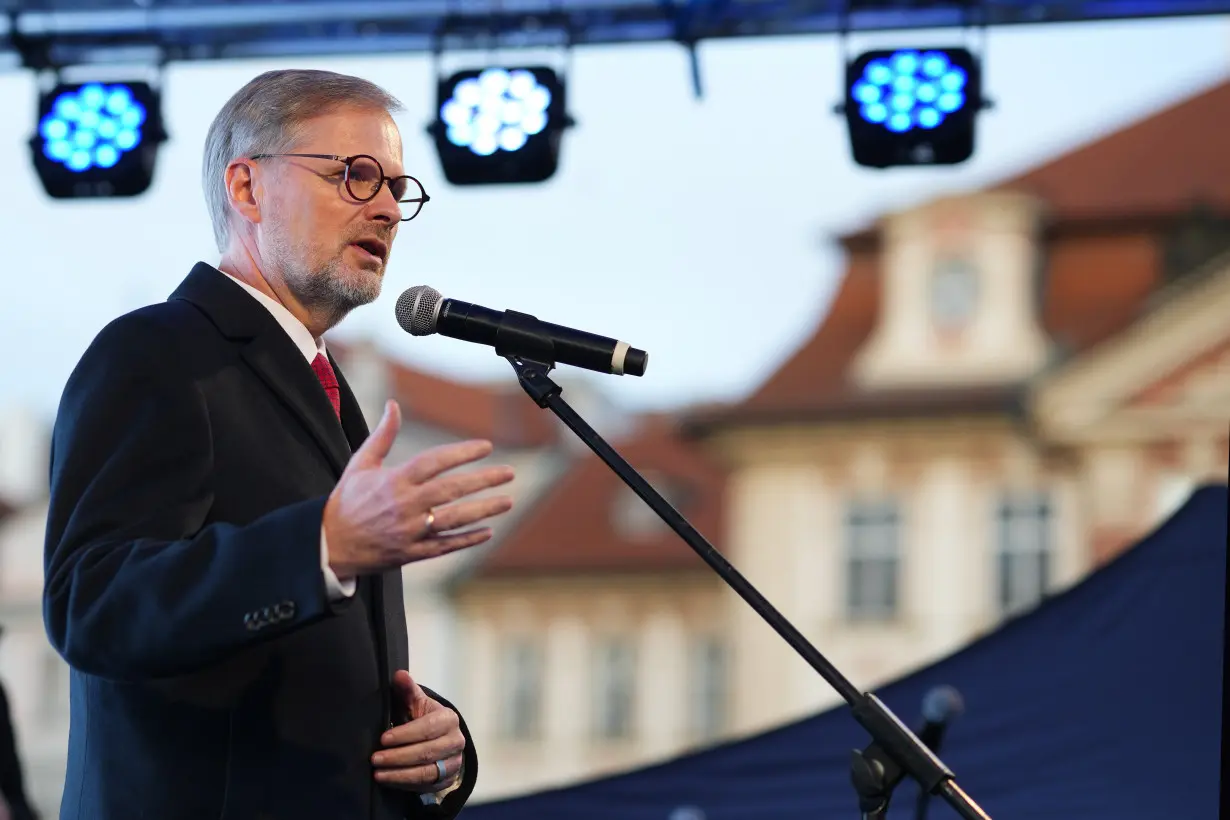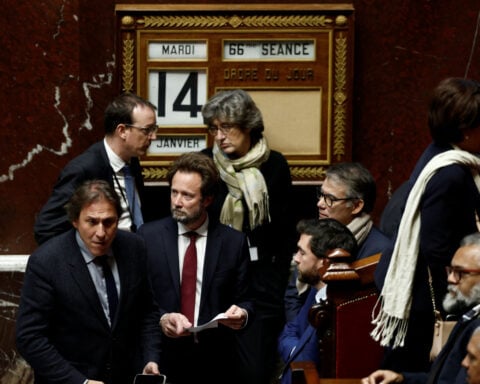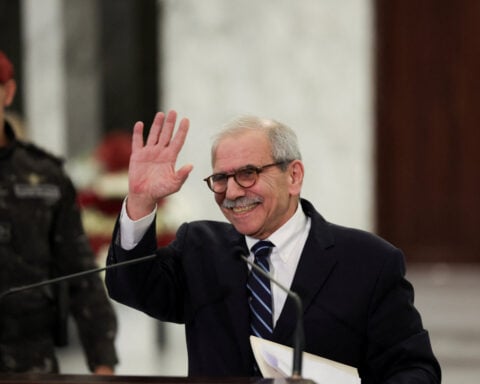PRAGUE (AP) — Labor unions staged a day of protests and strikes across the Czech Republic on Monday to voice their opposition to the government’s package of cuts and austerity measures meant to keep the ballooning deficit under control.
The unions are also demanding more money for the education and healthcare sectors and are protesting proposed changes to the pension system.
Prime Minister Petr Fiala said his government was not ready to give in because the measures are “absolutely necessary.”
“We have to stop the state indebtedness, ” Fiala said.

The unions were marching through Prague before rallying at a downtown square near Parliament’s building.
“The unionists protest because they don't like the development in the Czech Republic under the current government,” Josef Stredula, the head of a major umbrella union organization, told the crowd of several thousand.
“Resign,” the protesters chanted, aiming their message at the government.
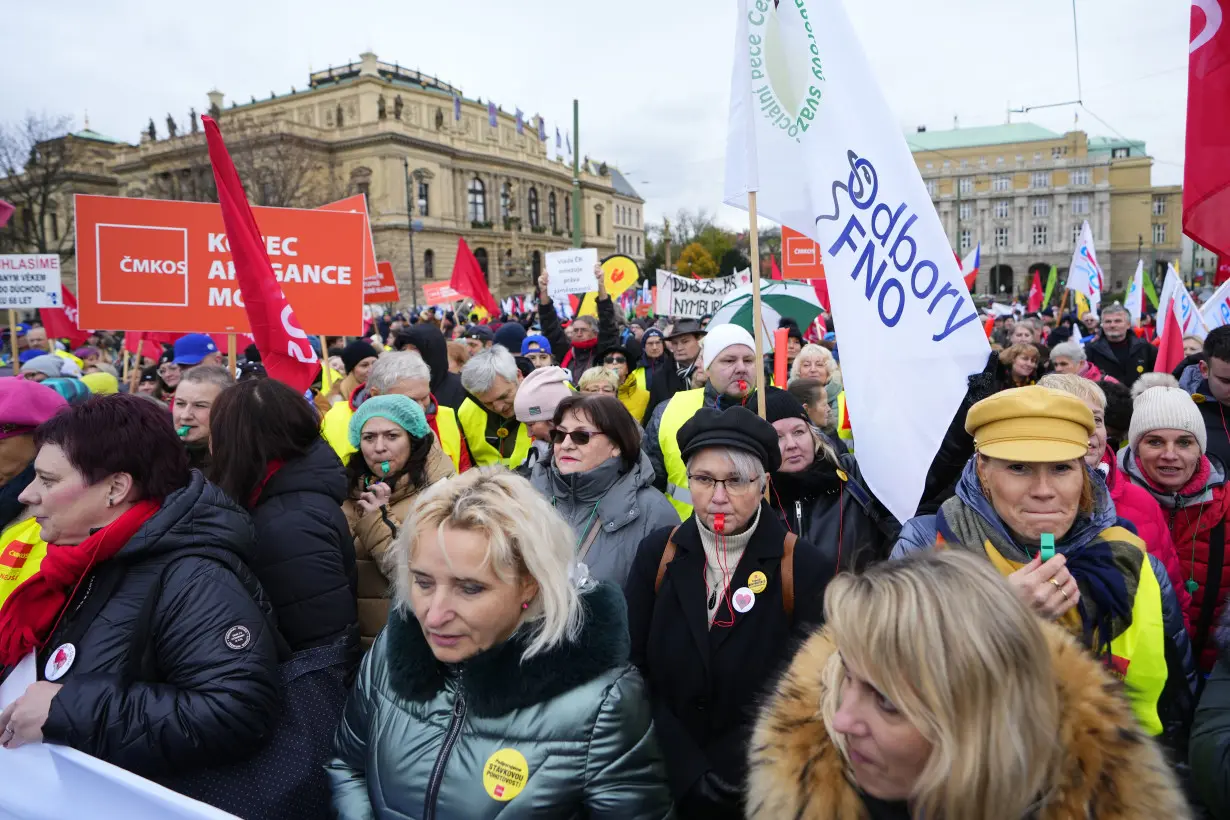
Stredula said the unions will plan more protests if the government refuses to negotiate.
Some 74% or over 7,200 nursery, elementary and high schools across the country were either fully or partially closed Monday in the biggest such protest since the establishment of the Czech Republic in 1993, unions said. Several universities supported the unions’ move.
Workers at hundreds of companies, including some state offices and major carmaker Skoda Auto, were planning to join the protests, mostly by stopping work for an hour or two.
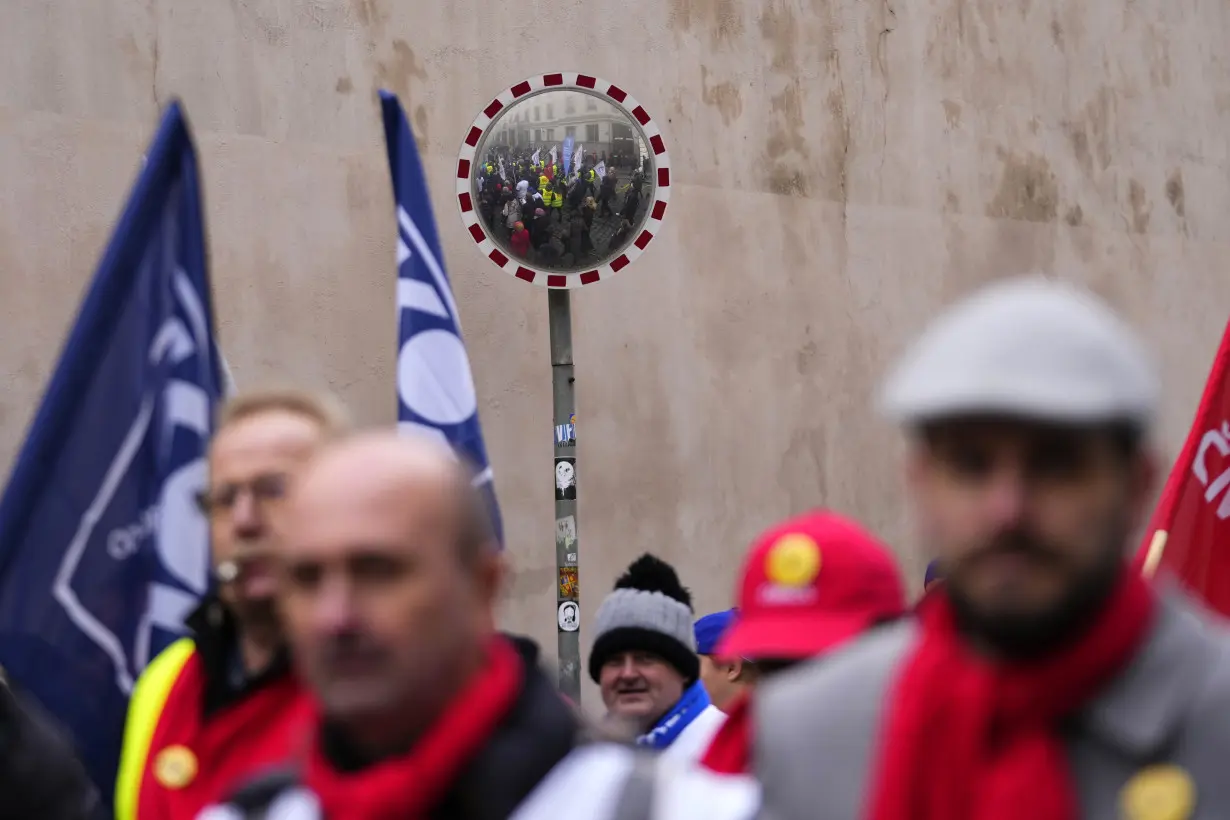
Both houses of the Parliament approved and President Petr Pavel signed into law last week an economic package of dozens of measures introducing budget cuts and increased taxes designed to keep the budget deficit under control.
Among other measures, Czechs will pay more taxes on alcoholic beverages, including beer, and on medicine. Businesses will also pay higher corporate taxes.
According to the government, the measures should reduce the budget deficit by 97 billion Czech crowns ($4.3 billion) next year and by 150 billion ($6.7 billion) in 2025.

As a result, the deficit of 3.5% of gross domestic product expected for this year should drop to 1.8% next year and to 1.2% in 2025.
The package is a compromise reached by Fiala’s five-party ruling coalition that took over after defeating populist Prime Minister Andrej Babis and his centrist ANO movement in the 2021 parliamentary election.
Babis has vehemently opposed the changes and said the government should resign.
The government's recent proposals to change the pension system would link the age of retirement to life expectancy but are not yet final. Unions fear the new age would exceed the current 65 years.

 Stock market today: Asian stocks mixed ahead of US inflation data
Stock market today: Asian stocks mixed ahead of US inflation data
 TikTok seeks to reassure U.S. employees ahead of Jan. 19 ban deadline
TikTok seeks to reassure U.S. employees ahead of Jan. 19 ban deadline
 US won't seek charges in unarmed Black motorist Ronald Greene's fatal 2019 arrest
US won't seek charges in unarmed Black motorist Ronald Greene's fatal 2019 arrest
 Euro zone households could increase consumption, ECB chief economist says
Euro zone households could increase consumption, ECB chief economist says
 Foreigners sold South Korean equities last month by most since early 2020
Foreigners sold South Korean equities last month by most since early 2020
 As fires ravage Los Angeles, Tiger Woods isn't sure what will happen with Riviera tournament
As fires ravage Los Angeles, Tiger Woods isn't sure what will happen with Riviera tournament
 Antetokounmpo gets 50th career triple-double as Bucks win 130-115 to end Kings' 7-game win streak
Antetokounmpo gets 50th career triple-double as Bucks win 130-115 to end Kings' 7-game win streak
 No 97 Laura Siegemund upsets Olympic champion Zheng Qinwen at the Australian Open
No 97 Laura Siegemund upsets Olympic champion Zheng Qinwen at the Australian Open
